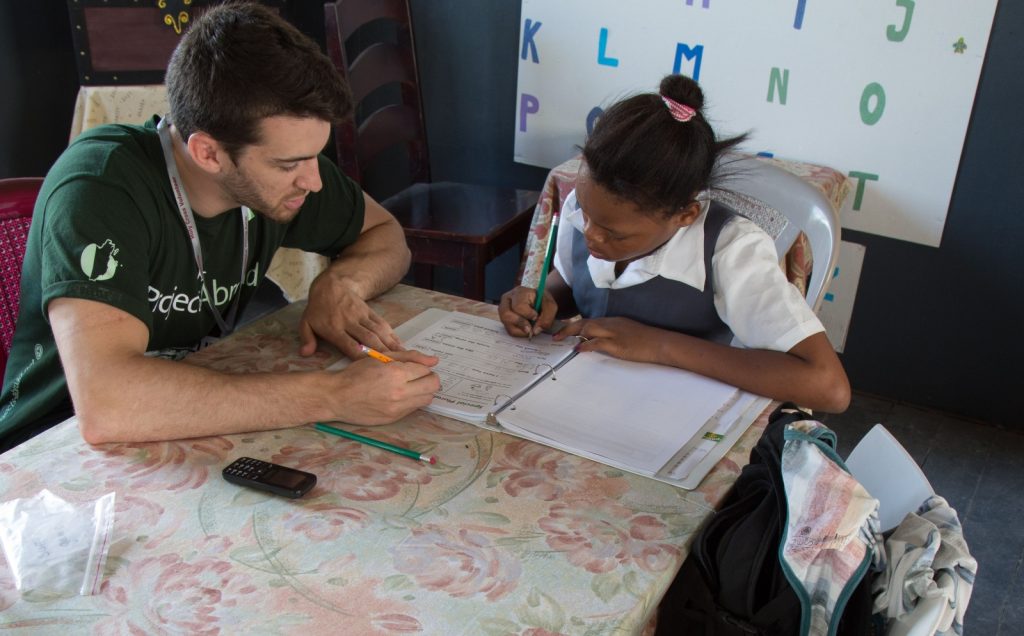Voluntourism is a new trend that blends the satisfaction of giving back with the excitement of discovering new places in an era when travel is easier than ever. Volunteer tourism, often known as voluntourism, enables visitors to experience foreign cultures firsthand while making a beneficial impact on the places they go. Travelers looking for deeper experiences than just sightseeing have been drawn to this type of travel more and more. Like every trend, though, there are advantages and disadvantages to be aware of, and both should be carefully considered.

Comprehending Volunteer Travel
Volunteering and tourism are combined to create volunteer tourism, which gives visitors the chance to do volunteer work while on vacation. Projects can range greatly in scope, from providing healthcare and animal conservation to teaching English in remote schools and developing infrastructure. The fundamental tenet is that visitors deepen their understanding of the host community and culture while supporting local efforts with their time, talents, and resources.
The Allure of Voluntourism
Deeply Meaningful Interaction
Travelers can actually improve the lives of others through volunteer travel, which gives them a feeling of purpose. This sensation of accomplishment has the power to elevate an ordinary vacation into something deeply important.
Immersion in Culture
Working closely with local communities, volunteer tourism offers a genuine cultural encounter that is frequently more absorbing than regular travel. Living and working among locals provides an understanding of their customs, difficulties, and everyday lives.
Individual Development
Volunteering may be a life-changing activity that promotes self-awareness and personal development. Travelers may learn new skills, strengthen their resilience, and obtain a more comprehensive understanding of world problems.
Creating Links
Travelers and local communities might form lifelong links through the connections that volunteerism generates. These connections can result in lifelong friendships and continuous support, stretching beyond the volunteer effort.
Voluntourism’s Effects
Although there are many advantages to volunteer travel, there are also many different effects it has on both the host communities and the volunteers.
Favorable Input
Projects involving volunteerism have the potential to significantly improve host communities when run well. Volunteerism can provide funding for initiatives in the fields of infrastructure, healthcare, education, and conservation that might not otherwise be possible. Collaborating with neighborhood organizations guarantees that the support is tailored to the needs and objectives of the community, which is a common component of successful programs.
Transfer of Skills
Volunteers frequently contribute priceless knowledge and abilities that local communities might benefit from. By giving the community members the information and abilities to continue initiatives long after the volunteers have departed, this knowledge transfer can empower the locals.
Financial Gains
By bringing in money for nearby businesses and providing jobs, volunteerism can strengthen local economies. The money that volunteers frequently spend on lodging, meals, travel, and recreational pursuits can help the host community’s economy grow.
Obstacles and Remarks
Notwithstanding its possible advantages, volunteerism is not without its detractors and difficulties. Opponents contend that, if improperly managed, some Voluntourism initiatives may cause more harm than good.
Insufficient Sustainability
Certain Voluntourism initiatives could not be long-term or sustainable. The benefits of volunteer work might be transient and leave communities without long-term support if there is no long-term plan or follow-up.
Two Reliance
Communities run the risk of becoming less capable of handling local problems and more reliant on outside assistance. This may weaken regional efforts and increase dependency on outside volunteers.
Incompetent Volunteers
Not every volunteer has the training or abilities required for the jobs they perform. Untrained volunteers may unintentionally do more harm than good, particularly in the healthcare and educational sectors.

The Travel and Tourism Sector
Due to the commercialization of volunteer travel, profit-driven organizations that put their own interests ahead of those of the community have emerged. This may lead to initiatives that serve tourists’ emotional needs more so than having a significant influence on the areas in which they are implemented.
Sensitivity to Culture
Volunteers are expected to treat their work with cultural sensitivity and respect for regional traditions. Volunteering might be less successful when relationships are strained due to misunderstandings and cultural insensitivity.
Read More: A Global Exploration of Culinary Delights: Popular Foods
The Best Methods for Conscientious Voluntourism
Organizations and volunteers alike need to follow best practices to guarantee that Voluntourism has a good effect.
Investigation and Carefulness
It is important for volunteers to do extensive research on the initiatives and organizations they are considering. Credible companies ought to have a well-defined goal, open communication throughout their business, and a history of long-lasting success.
Knowledge and Instruction
Volunteers should evaluate their abilities and look for projects that fit their areas of competence. It is important to give volunteers the right orientation and training to make sure they are ready for their tasks.
Working Together with Locals
Effective voluntourism projects entail engagement with local communities and organizations. Initiatives ought to be guided by regional goals and needs, with an emphasis on community empowerment as opposed to enforcing outside solutions.
Extended Term Dedication
To guarantee continuity and sustainability, volunteers ought to make commitments to longer-term projects wherever feasible. Temporary volunteers ought to be a part of a larger, continuous endeavor to offer long-term assistance.
Moral Aspects
Volunteers ought to approach their task with respect, humility, and an open mind. They ought to be aware of the possible consequences of their presence and work to mitigate any unfavorable outcomes.
In summary
Voluntourism offers people the opportunity to make a positive effect while engaging in a profoundly meaningful travel experience. It is a unique blend of travel and service. But it’s crucial to approach volunteerism thoughtfully, making sure that the initiatives are ethical, sustainable, and actually helpful to the host communities. Volunteers can help create a more just and compassionate society by following best practices and giving local communities’ needs and viewpoints priority. As the volunteer tourism industry develops further, it has the ability to strengthen international ties, advance intercultural understanding, and positively impact communities everywhere.








